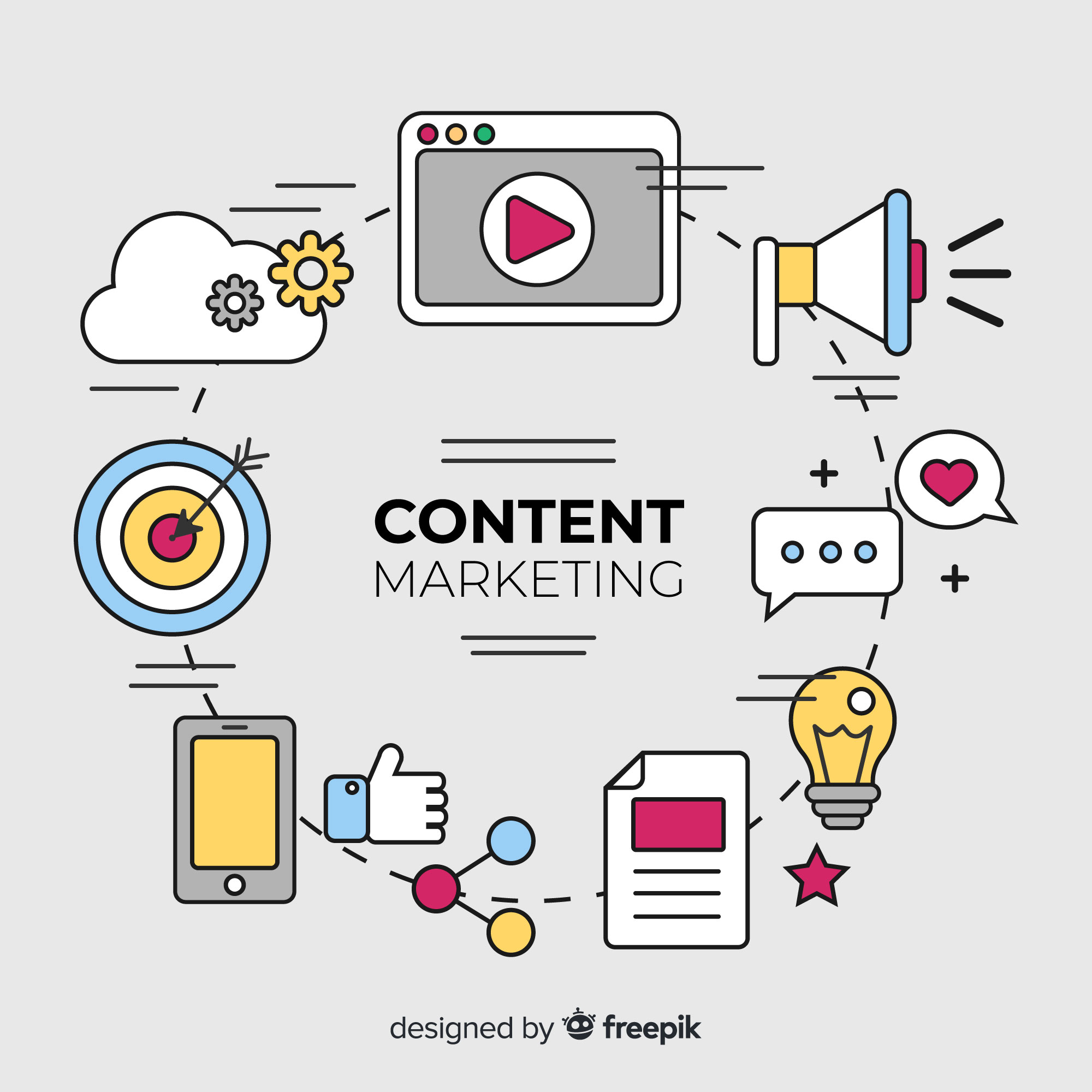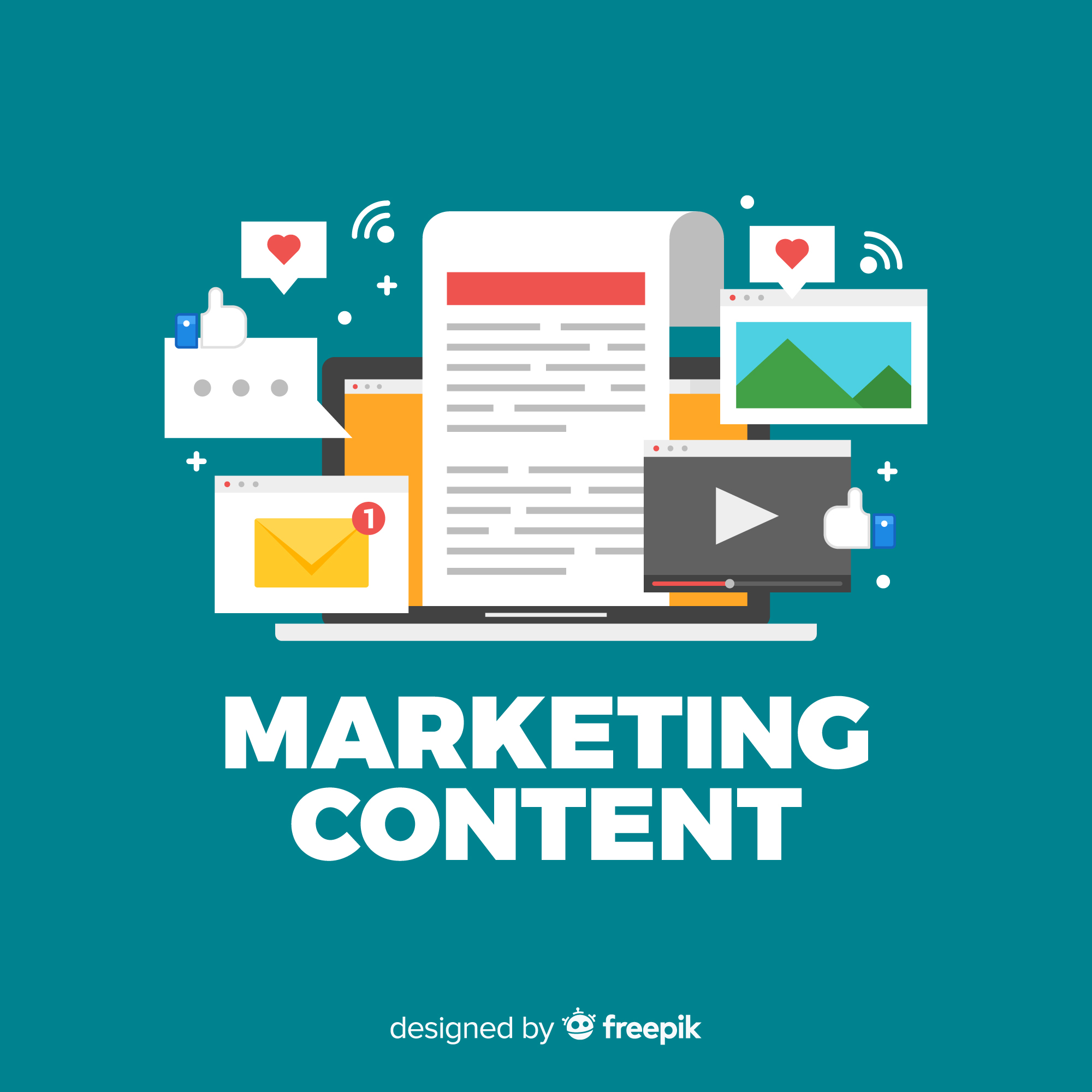
What is content marketing?
Content marketing is the development and distribution of relevant, useful content—blogs, newsletters, white papers, social media posts, emails, videos, and the like—to current and potential customers. When it’s done right, this content conveys expertise and makes it clear that a company values the people to whom it sells.
Why is content marketing important?
Content marketing is a go-to tactic that’s proven to work. Also, it provides a competitive advantage. Take a look at what the data says about content marketing: Businesses with blogs get 67% more leads than other companies. 67% of business to business (B2B) marketers say B2B content marketing increases engagement and the number of leads they generate. 88% of people credit branded videos for convincing them to purchase a product or service. Content marketing benefits businesses in many ways. When done right, an effective content marketing strategy can: Increase online visibility. A content strategy can help you attract more customers and website visitors, especially when people are constantly looking for solutions to their pain points. Offering educational and informative content about a topic they’re interested in can help you increase visibility online through your website or social media accounts. Generate more leads. You can increase leads when content marketing is used to drive traffic. Since educating customers builds trust and helps them feel more comfortable purchasing from your business, you can generate more leads and start to develop relationships with potential shoppers. Boost loyalty. Loyalty is essential in marketing and business because the more loyal your customers are, the more repeat purchases they’ll make. Offering content that informs consumers can help them begin to build trust with your brand and see you as a thought leader. Improve authority. Developing content is ideal for improving authority and becoming a thought leader in your industry. Not only does content help you build trust, but it can position your brand as the most authoritative on a particular topic.
How content marketing works?
Your business can use content marketing to attract leads, make a case for your product or service when someone is researching what to buy, and close sales. To use it effectively, you’ll need to deliver the right content at each stage of the sales cycle—from awareness through consideration to purchase. If this sounds complicated, don’t worry: Approaching content this way actually simplifies the process. Here’s how companies use content marketing in each stage of the sales cycle to engage and sell. Awareness stage At the first stage of the sales process, your content should focus on the top concerns of your audience. Writing about their pain points, challenges, and questions gives you the best chance of engaging with them. Content at the awareness stage should be educational, how-to advice. Save your selling for the consideration and closing phases. The best content for this stage includes articles, blog posts, e-books, videos, and newsletters. Examples: A restaurant writes a blog post about how to plan a menu for a graduation party in the spring. A bike touring company creates a short video on the topic “3 Ways to Choose the Right Bike Trip.” An architecture firm creates an e-book called “Questions to Ask Before Hiring an Architect.” Consideration stage In the consideration stage, content should offer a hybrid of helpful information and marketing. It should educate the reader about what features or functions to look for and how various features address their needs. Of course, your content should lean toward what your business offers. The best content for this stage includes case studies, how-to articles, how-to videos, and checklists or worksheets. Examples:__ A cloud-based phone system company creates a checklist entitled “8 Ways to Improve Your Phone Customer Service” that details the features and functions that make great customer service possible. A landscaping company creates case studies about “The Biggest Mistakes Most People Make When They Hire a Landscaper.” A catering company features case studies of successful events with a focus on the benefits they offer, such as “How to Accommodate Food Allergies at Your Next Event,” or “How to Ensure Your Caterer Uses Sustainable Practices.”


